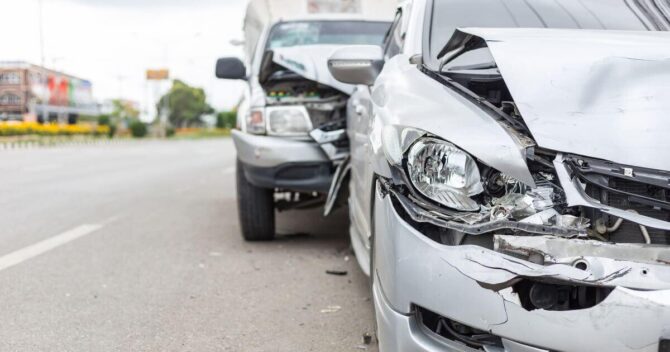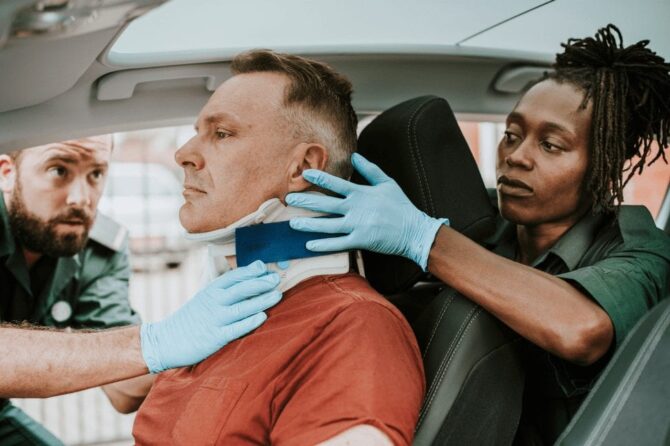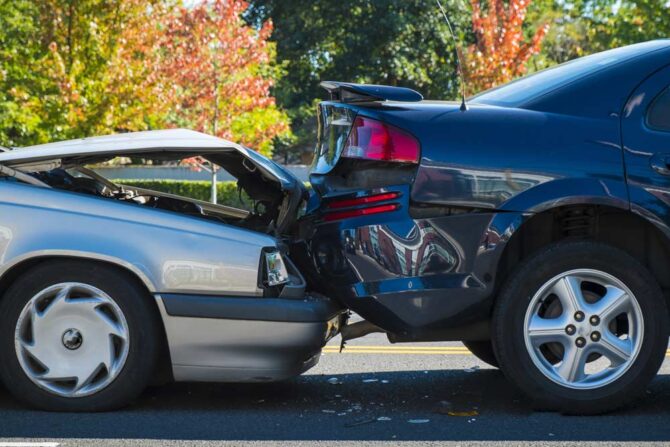
Car accidents are stressful events, even more so if you are involved in one while driving out of your own state. It is normal to be scared because you are in a foreign territory, and you might not know what to do.
However, rest assured. Car accident cases usually follow standard procedures that are very similar. You should contact a car accident lawyer as soon as possible. Read more here. If you are an Illinois citizen and experienced a car accident driving out of state, or you simply want to know what you should do if you were to deal with such an event, here is what you should consider:
Getting Into a Car Accident in Another State

Source: springersteinberg.com
Probably one of the first questions you might have when you are involved in a car accident outside your own state is if your insurance policy still covers you. However, you should rest assured because, as a U.S. citizen, most auto insurance policies cover all states and even some U.S. territories. You can expect to be covered even in Canadian provinces. That being said, it’s always best to be sure about this before embarking on a trip. A lawyer can help you better understand your insurance policy and what it covers.
As an Illinois citizen, your auto insurance may cover medical bills, legal services, vehicle repairs, and other financial losses. Your coverage limits can be adjusted based on the requirements of the state where you suffered a car accident.
In most instances, if the state where you experienced the car crash has lower liability limits than your home state, your insurance policy might not decrease to meet that state’s minimum. Instead, it might provide you with the maximum coverage on your policy. Contact a lawyer to find out more about your Illinois insurance liability limits.
What State Gets the Final Say?
As a general rule of thumb, the state where the car accident occurred will be the one to have its governing laws imposed on the terms of minimum liability coverage, the statute of limitations, or fault.
If your car accident occurred in a no-fault state, your PIP (Personal Injury Protection) would pay for the injuries regardless of fault, just as it would in your home state. However, Illinois citizens don’t have PIP as an insurance standard. Instead, it is optional coverage.
Suppose you don’t have PIP coverage as an Illinois citizen experiencing a car accident while driving out of state in a no-fault state. In that case, you need to file a claim against the at-fault driver’s insurance company. This is when you will need the help of a skilled car accident attorney who understands the laws governing both states.
If you experience a car accident while driving out of your home state where the no-fault system isn’t used (known as a tort state, such as Illinois), then the at-fault party will be held responsible for your injuries and not your PIP coverage. The at-fault driver’s insurance company must determine how lost wages, medical benefits, and other issues will be paid to you. Still, it’s important to first consult with an attorney to see if you receive a good deal and if you are entitled to other compensations as well.
What Should You Do in an Out of State Car Accident?
Regardless if you are in a no-fault or tort state and experience a car accident, what you do at the accident scene is crucial and will impact your case. Here is what you should do if you are involved in an out-of-state car accident scenario:
Check for Injuries and Alert Authorities

Source: oaktreelaw.com
The first thing you should do in an out-of-state car accident is to remain calm and check your injuries and the status of other parties involved in the accident scene. If you cannot call the authorities, ask someone else to do it.
If you can contact authorities, don’t assume that the other drivers will be contacting them since they are in their home state. If someone is seriously injured, don’t try to help them out without assistance from the authorities. Inform the operator of the status of the victims and follow their instructions precisely. You can risk hurting them even more if you act recklessly.
Having the police and emergency services notified about the accident scene will ensure their arrival and documentation of the accident, which will benefit you later on in your personal injury case. When paramedics arrive at the scene, let them check you up even if you don’t feel hurt.
Certain injuries don’t manifest themselves right away. You will most likely be pumped up with adrenaline that numbs the pain during an accident, so you shouldn’t act based on how fine you feel. Instead, it’s better to be careful. Having your injuries recorded will help you tremendously in your car accident claim anyway. Don’t turn down medical checkups, even in a foreign state.
Document Everything
Even if you are in a foreign state, you shouldn’t let this fear take hold of you in accepting an unofficial settlement with the at-fault driver. Don’t accept any negotiations and call authorities. You don’t know the true extent of your injuries and damages, and thus neither their actual value.
Whatever you do, do not admit guilt. You should, instead, assess your injuries and the damage by taking pictures of the accident scene, injuries, the vehicles, and the status of the road. Video recording is also a great option and will help you in your car accident claim.
Move your vehicle away from the road if possible to avoid further accidents, turn the engine off, and await the arrival of authorities.
Exchange Information

Source: advancedwellnessrva.com
You should exchange contact information at the accident scene with the other parties involved and eyewitnesses. Again, be very careful about what you say because it can be used against you. The at-fault party may try to persuade you to accept a settlement, especially if they see you aren’t from the same state.
Whatever they say about the law or other issues, take them with a grain of salt and, instead, wait to discuss them with authorities or legal experts.
Call Your Insurance Company
You should immediately inform your insurance company about your out-of-state car accident event. They might be able to help you out with tow trucks, cover the expenses, or help you find repair shops.
Contact a Car Accident Lawyer

Source: pexels.com
Lastly, you should consult with an experienced car accident lawyer about your situation. Dealing with an out-of-state car accident can be tricky with all the laws involved. Ask your family to search for an attorney or browse the internet and check out their reviews.
A car accident attorney can help you receive the best compensation for your injuries, lost wages, trauma, property damage, pain and suffering, and more. Without legal advice by your side, you might not be able to get the best deal for your troubles, even from insurance companies.
A car accident lawyer, on the other hand, has your best interests in mind. You don’t have to pay them anything unless they win your case, but it still differs from law firm to law firm. Lawyers can initiate lawsuits if your compensation isn’t on par with the true extent of your damages and injuries.



